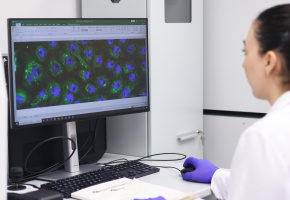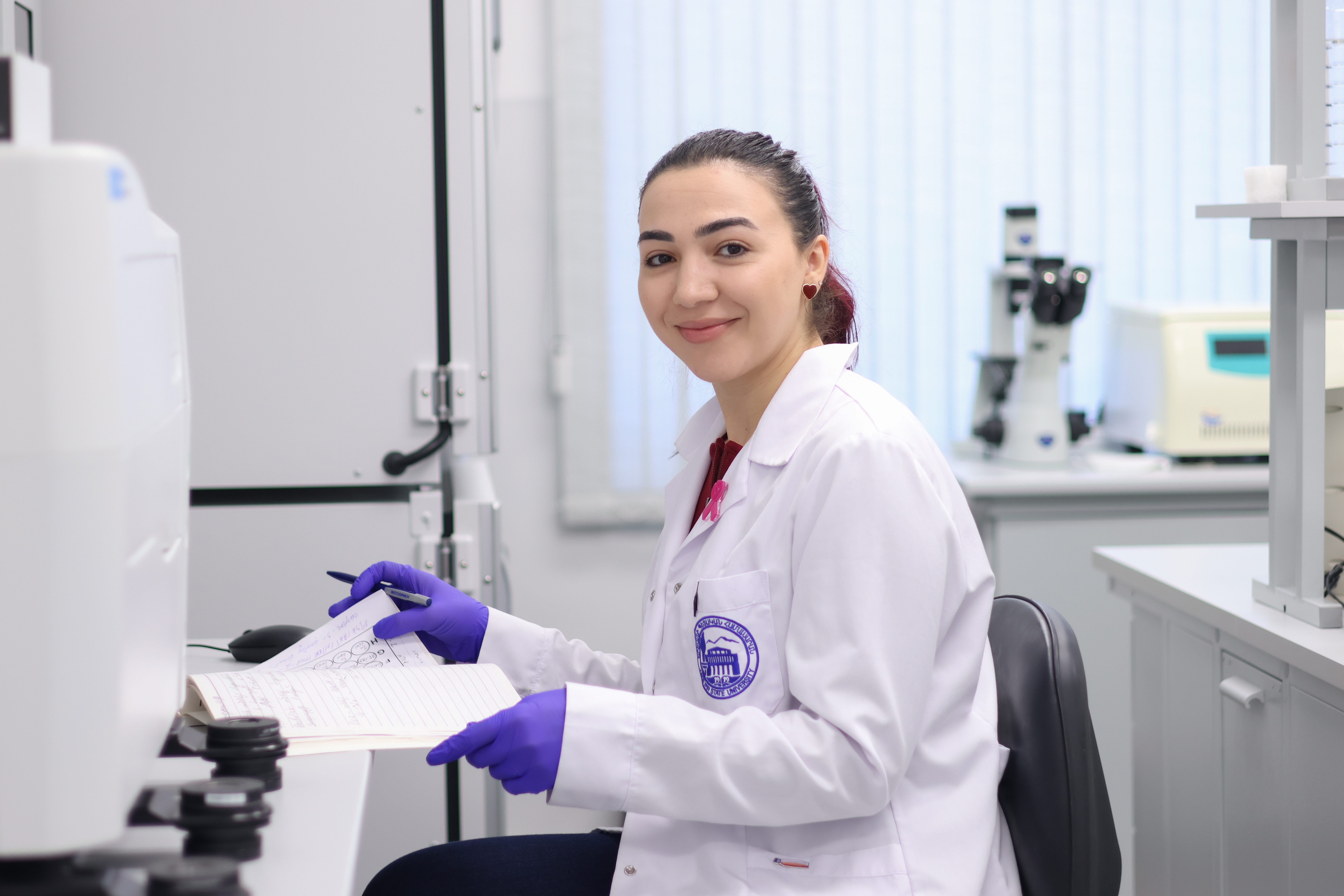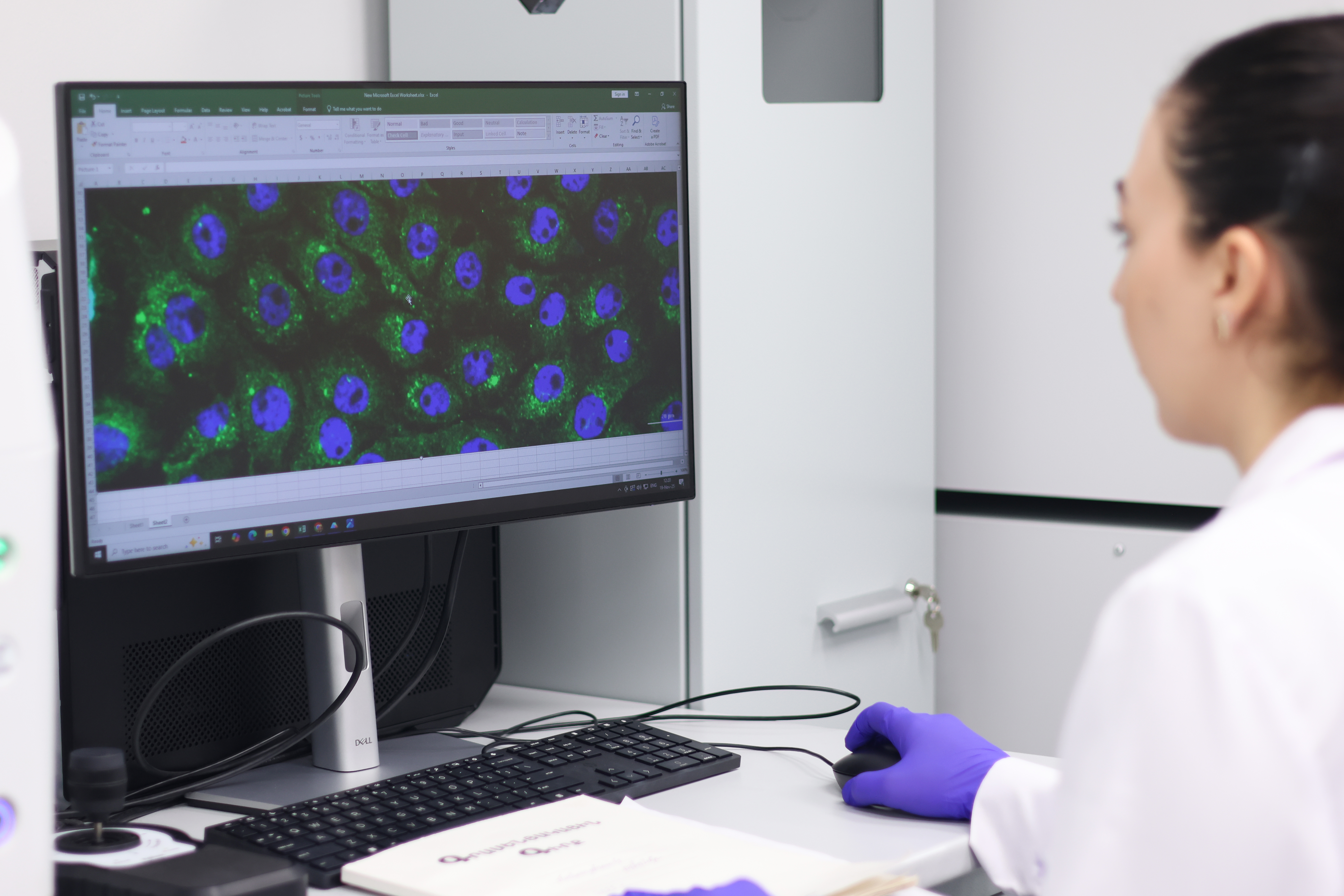November 19, 2025 | 16:01
Science
Research
Competitions
YSU biologists study cancer cells that 'hide' in bone marrow and later cause new tumor sites
After chemotherapy, cancer cells may "hide", particularly in the bone marrow. Under certain stimuli, they may re-enter the bloodstream years later, giving rise to new cancerous sites. For example, if a patient has had breast cancer, disease recurrence is possible. Presenting this issue, Nikolay Avtandilyan, Head of the Basic and Pathological Biochemistry Laboratory at YSU, emphasizes that the university's biologists are working to understand why these cells "migrate" to the bone marrow, which factors enable them to "hide", and what later causes the disease to reemerge with renewed intensity.
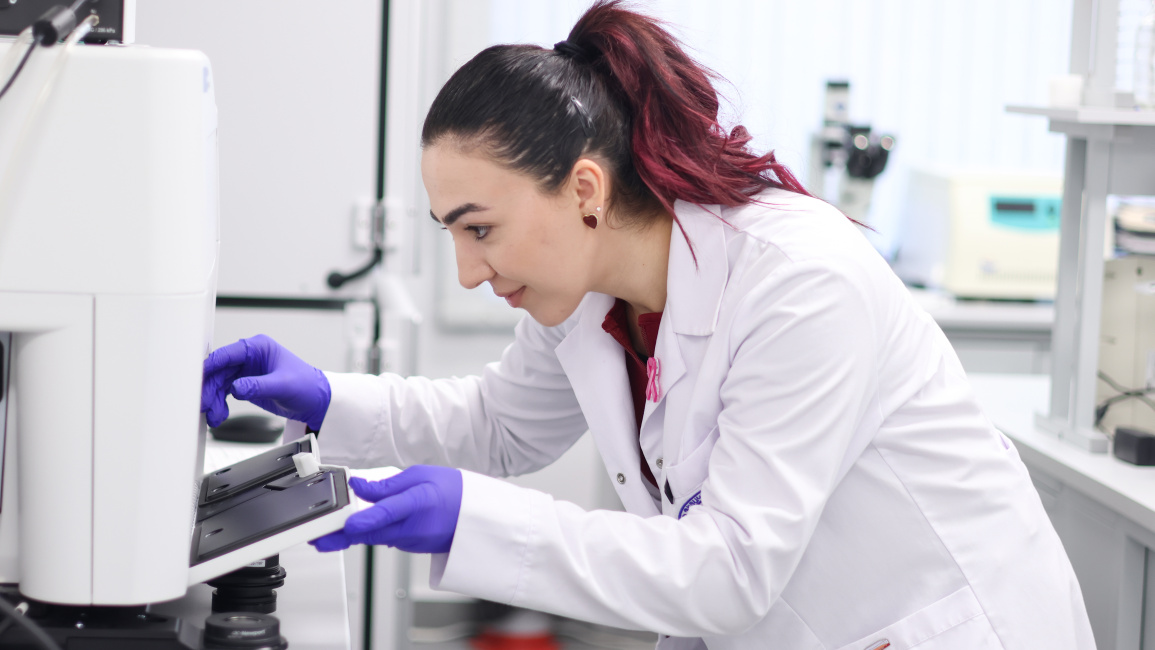
The Head of the Basic and Pathological Biochemistry Laboratory at YSU, Nikolay Avtandilyan, notes that various types of cancers (malignant tumors) produce a significant number of metastases to the bone marrow. Under his leadership, a team of young researchers will study the cells that "migrate" to and "hide" in the bone marrow—cells that subsequently cause new tumor sites—using experimental rats in which breast cancer will be induced. The research will examine both treated and untreated groups of rats.
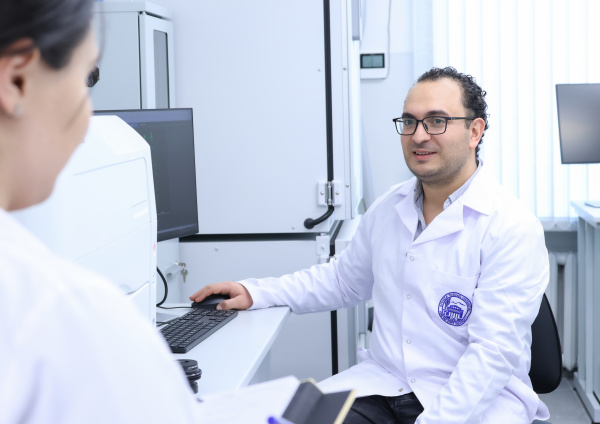
Avtandilyan noted that in the treated groups, alongside classic and novel chemotherapeutic drugs, the researchers will apply plant extracts as well as the most active phytochemicals contained within those extracts.
"The research team aims to identify the anti-angiogenic and anti-metastatic effects of the most active components found in plant extracts, and to determine how they may prevent cancer cells from 'hiding' and 'migrating'. In addition, we are trying to understand why these cells hide in the bone marrow, remain undetected, and yet reappear years later. The molecular mechanisms underlying these phenomena remain largely unknown," he said.
Svetlana Hovhannisyan, a member of Avtandilyan's research group, junior researcher at the Research Institute of Biology, and PhD candidate, emphasized that chemotherapeutic drugs have side effects. For example, they may not only kill cancer cells but also damage healthy cells—hence the rationale for combining chemotherapy with medicinal plants.
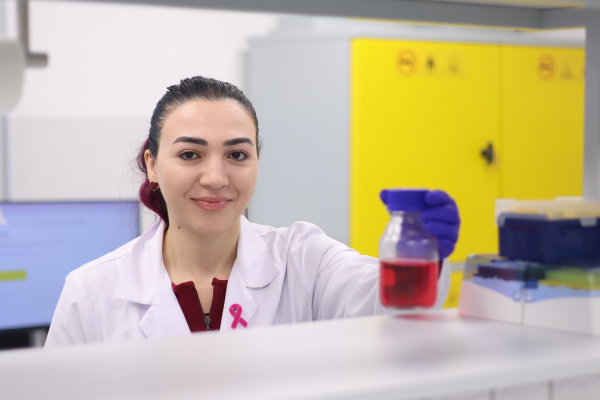
"Medicinal plants possess strong antioxidant properties. Considering that the Basic and Pathological Biochemistry Laboratory has conducted extensive research on plant extracts for many years, we are now examining a compound isolated from a medicinal plant," she said, adding that the various components of medicinal plants can suppress cancer through different mechanisms. Therefore, the team is studying how the isolated compound behaves compared with the full plant extract.
Avtandilyan added that the study also focuses on the insulin signaling pathway, inflammatory and immunostimulatory cytokines, as well as elements involved in angiogenesis and metastasis.
"We are examining quantitative changes in these signaling systems—in the cytokines and the proteins involved in metastasis and angiogenesis—to understand their interconnections in the treated and untreated groups of rats," he emphasized.
The research team also includes master's students and PhD students from the YSU Faculty of Biology.
The project presented by YSU PhD candidate Svetlana Hovhannisyan, titled "The Role of Bone Marrow Cellular Signaling Regulation in the Development and Prevention of Breast Cancer," has received funding through the "Research Assistance Program for Young Applicants and PhD Students–2025" organized by the Higher Education and Science Committee of RA MoESCS.

